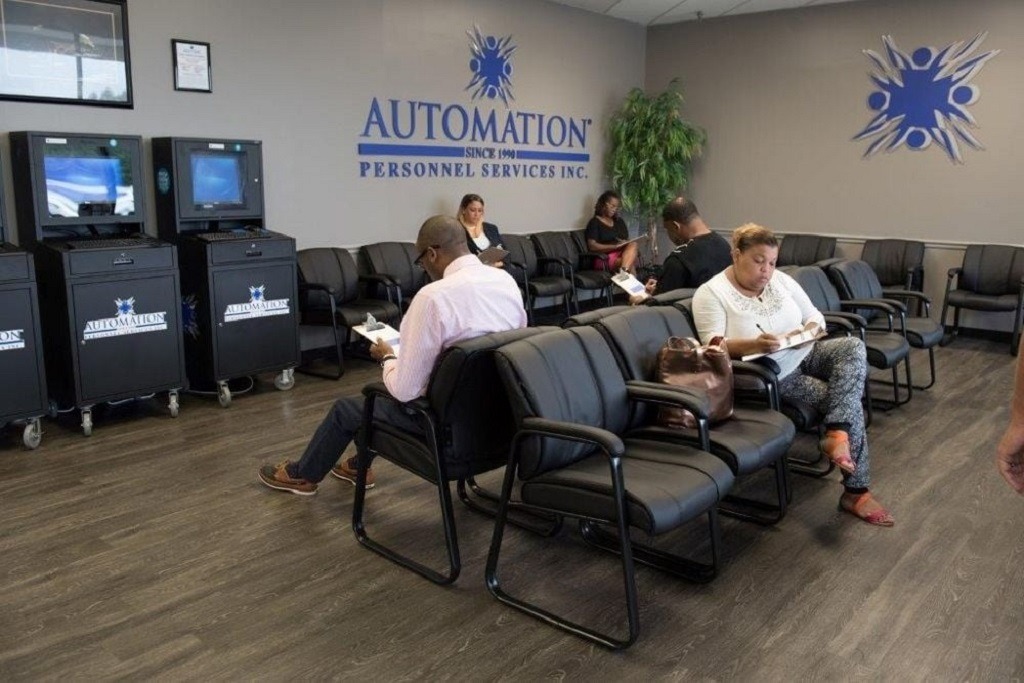If you’re considering applying to Automation Personnel Services (often abbreviated APS), this guide will help you understand who they are, how their hiring process works, and whether they’re a good fit for your career goals. Below you’ll find key insights, pros and cons, tips, and FAQs to assist your decision.
About Automation Personnel Services
Company Background & Focus
Automation Personnel Services is a staffing firm that specializes in temporary, temp-to-hire, and direct hire staffing across industries like light industrial, manufacturing, technical, contact centers, skilled labor, and automotive. They emphasize matching candidates with employers efficiently while also treating employees fairly—“treat people like you would like to be treated” is part of their stated culture.
Geographic Reach & Presence
APS has multiple offices across several states in the U.S. (for example, 36 offices in 10 states) and operates a job board listing their open positions. Their footprint allows them to serve candidates in many regions and industries.
What Kind of Jobs APS Offers
Role Types & Employment Models
APS provides different types of job placements:
- Temporary (temp): Short-term assignments based on employer needs.
- Temp-to-hire: You start as a temp, and then may transition to full time if both you and the employer agree.
- Direct hire: Permanent employment with the client company from day one.
Industries & Skill Levels
APS candidates often work in:
- Light industrial and manufacturing settings
- Automotive and skilled labor roles
- Technical or engineering support roles (especially through their technical recruitment branch)
- Contact center and administrative roles
These roles range from entry-level (assembly, machine operator) to more specialized (technicians, technical support). The variety gives flexibility depending on your experience and goals.
How the Hiring Process Works at APS
Step-by-Step Application Journey
Below is a typical recruitment process with APS:
- Submit an application: You complete an online application via their job board or general application.
- Screening & assessment: APS may evaluate your skills, run background or drug checks, or ask for additional documents (e.g. resume, certifications).
- Interview or match: You may interview with APS staff or directly with the employer. APS then matches you to a suitable assignment.
- Onboarding: Once placed, APS handles orientation, compliance, and sometimes training based on the employer’s needs.
Typical Timelines
The timeline from application to placement can vary widely depending on factors like location, role demand, your qualifications, and the client’s urgency. Some placements happen in a few days; others take weeks. Because APS handles many roles, they tend to move faster in high-demand areas (e.g. manufacturing). Always ask your recruiter for estimated timelines.
What It’s Like Working Through APS
Work Environment & Variety
One advantage of working through APS is exposure to diverse assignments. You may shift across different client sites, roles, or shifts. This can build experience and help you explore what kind of work you prefer.
Support & Training
APS claims to support workers through:
- Skill training or certification support
- Career counseling and coaching
- Safety training and compliance depending on the assignment
- Recognition programs and bonuses in some roles
Compensation & Assignments
Your pay depends on the role, industry, location, and experience. APS doesn’t always publish fixed pay scales (especially since many jobs are with client employers). In temporary roles, hours may fluctuate depending on client demand. If you transition to full time or direct hire, that often brings more stability.
Pay, Benefits, and Perks
Typical Benefits Offered
APS lists several benefits for eligible employees (in some assignments):
- One week of paid vacation
- Six paid holidays per year
- Health insurance at group rates
- 401(k) plan options
- Bonuses, recognition programs
- Career counseling and training programs
Comparative Perspective
Compared to agencies that only offer temp placements without benefits, APS’s benefit offerings can be more generous—though eligibility often depends on assignment duration and client structure. For purely short-term roles, benefits may be limited.
Pros and Cons of Working with APS
Pros
- Flexibility: You can take on roles that suit your schedule and test different industries.
- Quick placement: Agencies like APS often move faster than direct employer hiring processes.
- Skill building: Exposure to multiple roles can help you develop a broader skill set.
- Access to benefits: Some temp roles offer benefits depending on eligibility.
- Potential transition to full time: Many roles allow a shift from temp to direct employment.
Cons
- Inconsistent hours: Some assignments may offer unpredictable schedules.
- Limited long-term security: Temp roles are by nature temporary.
- Variable benefits: Not all roles qualify for full benefits.
- Possible travel or relocation: Some assignments may require commuting or relocating.
- Employer variability: The experience depends heavily on the client company you’re placed with.
Deciding If It’s Right for You
If you value flexibility, want to get into work quickly, or are building your resume, APS can be a useful stepping stone. If you prefer stability and long-term benefits, you should try to target direct hire assignments or jobs through which APS can transition you to a permanent role.
Tips for Applicants
- Tailor your resume: Emphasize skills, certifications, and previous relevant experience.
- Be honest and clear: Let your recruiter know your constraints (e.g. shift preferences, location, shift availability).
- Prepare for interview questions: They may ask about reliability, ability to adapt, safety experience, etc.
- Have documentation ready: IDs, certifications, references, and other standard hiring paperwork.
- Follow up with your recruiter: Ask about leads, feedback, and next steps.
- Maintain a good track record: Good performance during temp assignments can lead to more and better offers.
Reviews & Reputation
APS has a mixed but generally favorable reputation in the staffing space. On Glassdoor, APS gets ratings averaging around 3.8/5 in areas like work-life balance, values, and opportunities. Some employees note that while benefits and culture are positive, management or job consistency can vary.
On Indeed, APS Employment Services scores about 3.4/5 based on employee reviews (23 reviews), with strengths cited in learning and team dynamics but concerns about job stability or advancement. As with many staffing agencies, employee experience heavily depends on the specific role, the client, and location.
One thing to note: APS was involved in a class-action settlement relating to a 2020 data breach. The breach allegedly exposed applicants’ sensitive data, and the firm agreed to a settlement of $1.375 million. While APS denies wrongdoing, this history is part of their public record and worth knowing as an applicant.
FAQs
| Question | Answer |
|---|---|
| Does APS charge applicants any fee? | No—legitimate staffing agencies like APS do not charge you to apply or be placed. Always be wary of agencies requesting upfront fees. |
| How long until I’m placed in a job? | It depends. Some placements happen in days, others take weeks based on your qualifications, local demand, and the role. Always ask your recruiter for estimates. |
| Can I move from temp to full time via APS? | Yes—many roles are temp-to-hire or direct hire, allowing you to transition to permanent employment if the client offers it. |
| Are remote or hybrid jobs available? | Potentially—though APS mostly focuses on industrial, manufacturing, and technical roles, which are generally onsite. Some administrative or contact center roles may allow remote or hybrid arrangements. |
| How often do assignments change? | That depends on client need. Some assignments last weeks or months; others shift often. The more flexible you are, the more opportunity you’ll have. |
| What happens if there’s a problem at the workplace? | You should first contact your APS recruiter or representative. Staffing agencies typically act as your employer of record and can mediate issues, such as safety, pay discrepancies, or scheduling concerns. |
| Is prior experience required? | It depends on the role. Entry-level positions may require minimal experience, while technical assignments often require certifications or specialized skills. Be transparent about your experience during application. |
Read More Also: Robotic Vacuum for Maximum Efficiency
Final Thoughts
Applying to Automation Personnel Services can be a solid move if you’re looking for flexible work, speed in placement, or a path to gain diverse experience. However, it’s not a guaranteed ticket to stability—especially in temp roles. To make the most of it, aim for temp-to-hire roles, maintain solid performance, and stay proactive with your recruiter.
Before applying, research roles in your area, read recent employee reviews (on Glassdoor, Indeed, etc.), and ask pointed questions of your recruiter (benefits eligibility, assignment duration, client expectations). Doing so helps you enter with eyes open—and increase your chances of finding a job that aligns with your goals.




